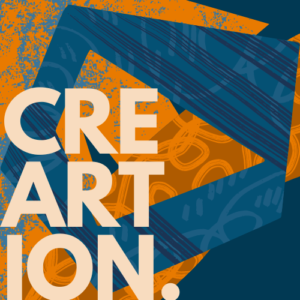Unveiling the Masterpieces: A Journey through Iconic Filmographies
Film is an art form that has the power to captivate and transport us to different worlds. Throughout history, there have been numerous filmmakers who have left an indelible mark on the industry with their iconic filmographies. In this article, we will embark on a journey through some of these masterpieces, exploring the brilliance behind their creation and the impact they have had on cinema.
I. The Power of Film: A Gateway to Immersive Experiences
Film has the ability to transport us to different places and times, allowing us to experience worlds beyond our own. Through the lens of a camera, filmmakers can capture the essence of a story and bring it to life on the big screen. From the majestic landscapes of “Lawrence of Arabia” to the gritty streets of Martin Scorsese’s “Taxi Driver,” each film has its unique way of immersing the audience in its narrative.
II. Unveiling the Masterpieces: A Glimpse into Iconic Filmographies
1. The Godfather Trilogy: A Saga of Power and Family
Francis Ford Coppola’s “The Godfather” trilogy is a true masterpiece in every sense of the word. With its complex characters, intricate storytelling, and powerful performances, this epic saga explores themes of power, loyalty, and the consequences of one’s actions. From Marlon Brando’s unforgettable portrayal of Don Vito Corleone to Al Pacino’s transformation into the ruthless Michael Corleone, “The Godfather” trilogy continues to stand the test of time.
2. Citizen Kane: The Birth of a Cinematic Legend
Orson Welles’ “Citizen Kane” is often hailed as one of the greatest films ever made. Released in 1941, this groundbreaking masterpiece revolutionized filmmaking with its innovative narrative structure, visual techniques, and compelling storytelling. Through the lens of a newsreel reporter, the film delves into the life of Charles Foster Kane, a wealthy newspaper magnate, and explores the complexities of power, ambition, and the search for identity.
3. The Works of Akira Kurosawa: A Master of Japanese Cinema
Akira Kurosawa is widely regarded as one of the greatest filmmakers in the history of Japanese cinema. His filmography includes timeless classics such as “Seven Samurai,” “Rashomon,” and “Yojimbo.” Kurosawa’s mastery lies in his ability to blend action, drama, and profound storytelling, creating films that resonate with audiences across cultures and generations.
4. The French New Wave: A Cinematic Revolution
The French New Wave movement of the 1950s and 1960s brought forth a wave of innovative and influential filmmakers who challenged traditional storytelling conventions. Directors like Jean-Luc Godard, François Truffaut, and Agnès Varda paved the way for a new era of cinema, characterized by its unconventional narratives, naturalistic performances, and a fresh approach to filmmaking.
III. FAQs about Unveiling the Masterpieces: A Journey through Iconic Filmographies
1. Why are these films considered masterpieces?
These films are considered masterpieces due to their exceptional storytelling, groundbreaking techniques, and lasting impact on the cinematic landscape. They have influenced generations of filmmakers and continue to captivate audiences with their timeless themes and artistic brilliance.
2. Can anyone appreciate these films, or are they only for cinephiles?
While cinephiles may have a deeper appreciation for the technical aspects and historical context of these films, anyone can enjoy and be moved by their storytelling and performances. These masterpieces transcend boundaries and speak to universal human experiences, making them accessible to a wide range of audiences.
3. Are there any contemporary filmmakers who can be considered masters of their craft?
Certainly! The world of cinema is constantly evolving, and there are many contemporary filmmakers who have already left their mark on the industry. Directors like Christopher Nolan, Quentin Tarantino, and Bong Joon-ho have garnered critical acclaim and have a distinct voice in their storytelling. It will be fascinating to see how their filmographies continue to unfold in the years to come.
For further exploration of the topic, you can visit this link [insert external link here] to delve deeper into the world of “Unveiling the Masterpieces: A Journey through Iconic Filmographies.”
In conclusion, exploring iconic filmographies is like embarking on a journey through the realms of human creativity and imagination. These masterpieces have shaped the course of cinema, leaving an indelible legacy for future generations of filmmakers and enthusiasts alike. So grab some popcorn, dim the lights, and get ready to unveil the magic of these cinematic treasures.
